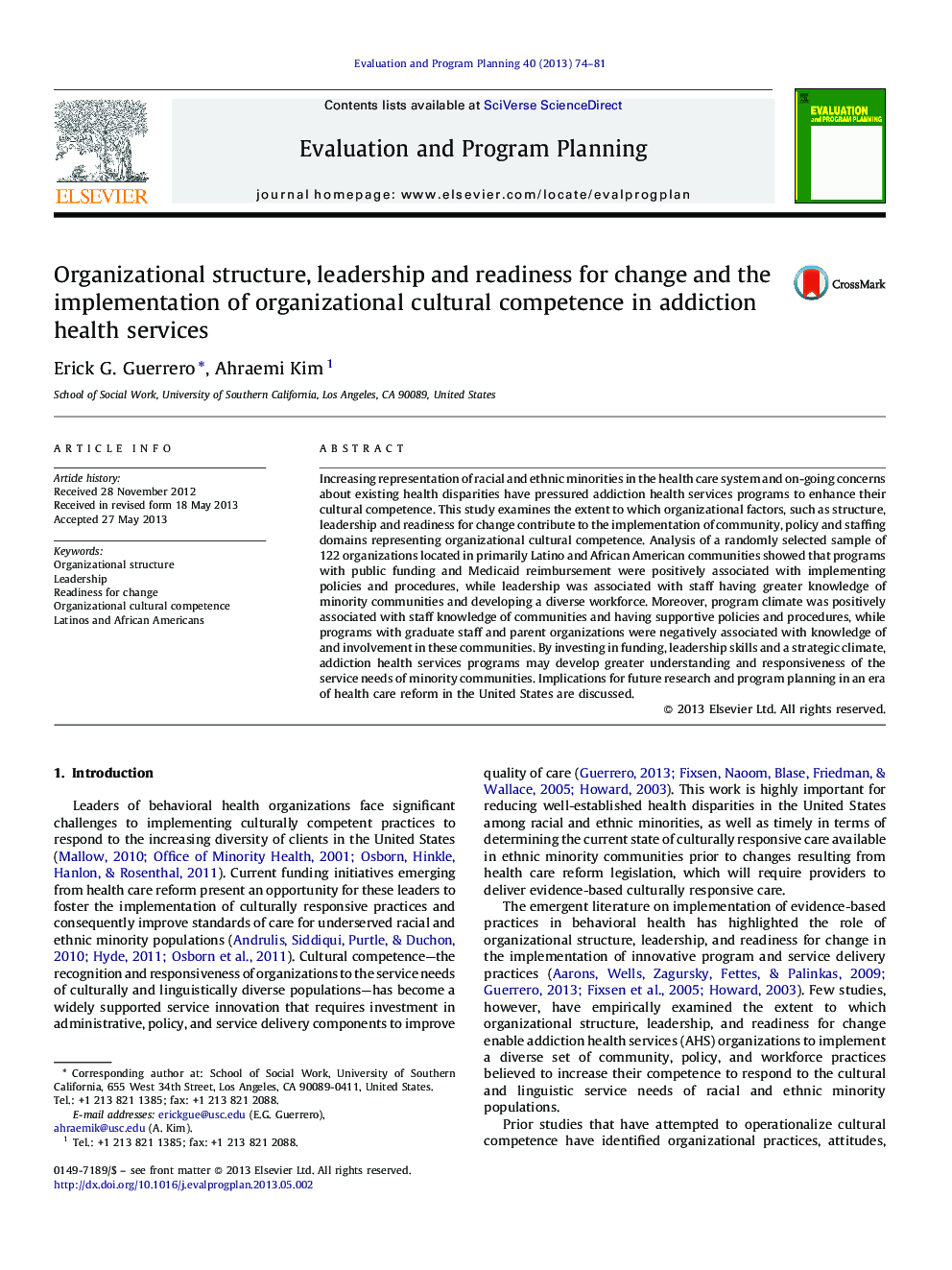| Article ID | Journal | Published Year | Pages | File Type |
|---|---|---|---|---|
| 322275 | Evaluation and Program Planning | 2013 | 8 Pages |
•Examined treatment programs capacity to implement culturally competent practices.•Programs’ funding, leadership and climate were associated with greater competence.•Programs’ professionalism was negatively associated with cultural competence.•Implications for program planning under an era of health care reform are discussed.
Increasing representation of racial and ethnic minorities in the health care system and on-going concerns about existing health disparities have pressured addiction health services programs to enhance their cultural competence. This study examines the extent to which organizational factors, such as structure, leadership and readiness for change contribute to the implementation of community, policy and staffing domains representing organizational cultural competence. Analysis of a randomly selected sample of 122 organizations located in primarily Latino and African American communities showed that programs with public funding and Medicaid reimbursement were positively associated with implementing policies and procedures, while leadership was associated with staff having greater knowledge of minority communities and developing a diverse workforce. Moreover, program climate was positively associated with staff knowledge of communities and having supportive policies and procedures, while programs with graduate staff and parent organizations were negatively associated with knowledge of and involvement in these communities. By investing in funding, leadership skills and a strategic climate, addiction health services programs may develop greater understanding and responsiveness of the service needs of minority communities. Implications for future research and program planning in an era of health care reform in the United States are discussed.
